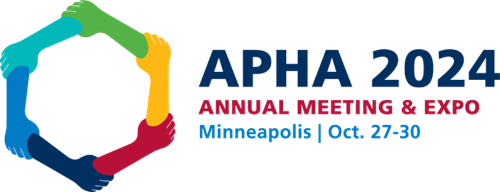Connect with Community Catalyst at APHA 2024
Community Catalyst is a national organization dedicated to building the power of people to create a health system rooted in race equity and health justice and a society where health is a right for all. Together with partners, we’re building a powerful, united movement with a shared vision and strategy for a health system accountable to all people.
No matter who you are or where you live, the “public” should be at the center of public health.
We are working with partners and community leaders across the country to develop and drive bold policy and practice change ideas – from public health to coverage to payment reform – that will fundamentally change the health system. In all we do, we embrace that the health system can only be reimagined if the people who are harmed the most today are at the center of designing the solutions for tomorrow.

Connect with Community Catalyst at the 2024 American Public Health Association Meeting and Expo
| Day/Time | Session Code & Session Title | Session Description | Session Speakers |
|---|---|---|---|
| Monday, Oct. 28 2:30-3:30 p.m. | 3209.0 – Empowering immigrant and refugee communities: Enhancing health and socioeconomic access amid the COVID-19 pandemic | Community-based organizations (CBOs) supported by the Vaccine Equity and Access Program (VEAP) have played a pivotal role in addressing COVID-19 disparities by establishing trust, forming coalitions, and providing comprehensive support. VEAP will facilitate a poster session and discussions among four CBOs to tackle challenges beyond vaccination, including SDOH such as housing instability, identification barriers, food insecurity, culturally appropriate healthcare accessibility, and language barriers. | Presenter: Nicholle Cross, Strategic Manager for the Vaccine Equity and Access Program at Community Catalyst |
| Tuesday, Oct. 29 4:30-5:30 p.m. | 4328.0 – Join us for these four connected sessions: 1-Policy opportunities for supporting the deployment of dental therapists 2-Dental therapy: A catalyst for community-based care 3-Dental therapy as a strategy for developing a more representative workforce 4-Dental therapy: A tool for economic justice | With the state of the health workforce a hot topic on Capitol Hill, these sessions will provide an overview of how dental therapy serves as a transformative force for health, race, and economic justice, with presentations by a slate of our partners. Partners involved: CareQuest Institute for Oral Health, Children’s Dental Services, Northwest Portland Area Indian Health Board, American Dental Therapy Association, Strategic Concepts in Organizing and Policy Education. | Presenter: Laura Brannon, Sr. Project Manager for the Dental Therapy Project at Community Catalyst |
| Wednesday, Oct. 30 9:15 – 9:30 a.m. | 5010.0 – Fostering equity: A strategic framework for addressing long COVID disparities through community engagement | Black and Hispanic/Latinx communities experienced significant disparities in COVID-19 infection and were more likely to be hospitalized and/or experience death. To date, there is limited to no community-driven data about the impact of Long COVID on Black and Hispanic/Latinx communities, nor the potential solutions to address inherent challenges at the community level. This session will provide an overview of lessons learned from implementing community listening sessions in six communities focused on the physical, mental, and economic impact of COVID-19. Recommendations on how to support communities will be discussed. | Co-Presenters: Sheree H. Keitt, Director of Public Health Strategy and Programs at Community Catalyst Daisha Bonhomme, Sr. Project Manager, Community Catalyst |
To reimagine the health system, we need to address every corner of it and all the ways it needs to be more connected and responsive. That includes building a new path forward for public health and working to spur the adoption of community-led and people-centered health innovation models that change how care is delivered and paid for. In all we do, we embrace that the health system can only be reimagined if the people who are harmed the most today are at the center of designing the solutions for tomorrow.
Additional Resources:
- Long Covid Report: https://communitycatalyst.org/resource/long-covid-project/
- Dental Therapy: https://communitycatalyst.org/posts/supporting-the-full-dental-team/